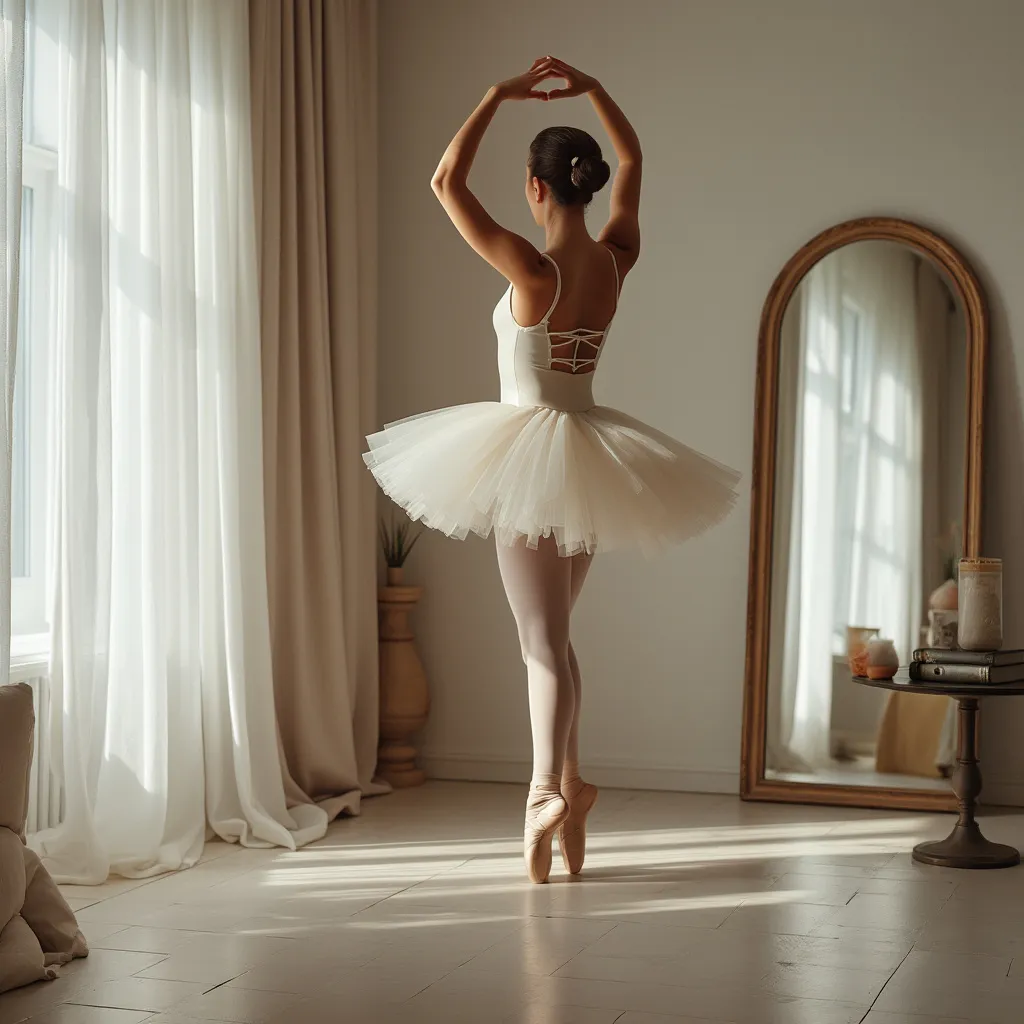Pursuing a Career in Ballet Choreography

Introduction
Ballet choreography is a unique and rewarding career that combines the art of dance with the creativity of storytelling. It involves designing and directing dance performances, often for ballet companies, theaters, and dance schools. Pursuing a career in ballet choreography requires a deep understanding of ballet techniques, a passion for dance, and the ability to convey emotions and narratives through movement. This article will explore the various aspects of becoming a ballet choreographer, including the necessary skills, educational pathways, career opportunities, and tips for success in this competitive field.
Understanding Ballet Choreography
What is Ballet Choreography?
Ballet choreography is the art of creating and arranging dance movements and sequences for ballet performances. A choreographer designs the steps, patterns, and formations that dancers follow, often set to music. The goal is to tell a story, evoke emotions, or convey a theme through the dancers’ movements. Ballet choreography can range from classical to contemporary styles, each with its own set of techniques and aesthetics.
The Role of a Ballet Choreographer
A ballet choreographer’s role extends beyond creating dance sequences. They are responsible for:
- Conceptualizing the Performance: Developing the overall theme, storyline, and mood of the ballet.
- Collaborating with Dancers: Working closely with dancers to teach and refine the choreography.
- Music Selection: Choosing or collaborating with composers to select music that complements the choreography.
- Stage Design: Collaborating with set and costume designers to create a cohesive visual experience.
- Rehearsals: Leading rehearsals to ensure dancers perform the choreography accurately and expressively.
Skills and Qualities Needed
Technical Proficiency in Ballet
A strong foundation in ballet technique is essential for any aspiring choreographer. This includes knowledge of classical ballet positions, movements, and terminology. Many successful choreographers have extensive experience as dancers themselves, which provides them with a deep understanding of the physical and artistic demands of ballet.
Creativity and Artistic Vision
Choreographers must possess a high level of creativity and an artistic vision to design original and compelling dance pieces. They need to think outside the box and experiment with different movements, formations, and styles to create unique performances.
Communication and Leadership Skills
Effective communication and leadership skills are crucial for working with dancers, directors, and other collaborators. Choreographers must be able to clearly convey their ideas, provide constructive feedback, and inspire their team to bring the choreography to life.
Musicality
An excellent sense of musicality is important for choreographers to create dance sequences that are rhythmically and emotionally in sync with the music. Understanding musical structure, tempo, and dynamics helps choreographers design movements that enhance the overall performance.
Attention to Detail
Choreographers must have a keen eye for detail to ensure that every movement, gesture, and formation is executed precisely. This attention to detail is essential for creating polished and professional performances.
Educational Pathways
Formal Education
While formal education is not always required, many aspiring choreographers benefit from pursuing a degree in dance or choreography. Programs at universities and conservatories often offer courses in ballet technique, choreography, dance history, and performance. These programs provide valuable training and opportunities to work with experienced professionals.
Workshops and Intensives
Attending workshops and intensives can also be beneficial for aspiring choreographers. These programs offer specialized training in choreography and provide opportunities to learn from established choreographers, gain hands-on experience, and network with other dancers and professionals in the field.
Apprenticeships and Mentorships
Apprenticeships and mentorships with experienced choreographers can provide invaluable practical experience and guidance. Working closely with a mentor allows aspiring choreographers to observe the creative process, receive personalized feedback, and develop their own style and techniques.
Career Opportunities
Ballet Companies
Many choreographers work with professional ballet companies, creating new works or restaging classical ballets. These positions can be highly competitive, but they offer the opportunity to work with talented dancers and present work on prestigious stages.
Theaters and Opera Houses
Theaters and opera houses often commission choreographers to create dance sequences for their productions. This can include ballets, operas, musicals, and other theatrical performances. Working in these settings allows choreographers to collaborate with a diverse range of artists and contribute to multidisciplinary productions.
Dance Schools and Academies
Choreographers may also find opportunities in dance schools and academies, where they can create works for student performances and competitions. Teaching choreography classes and workshops can also be a fulfilling way to share their knowledge and inspire the next generation of dancers.
Freelance Choreography
Many choreographers work as freelancers, taking on projects with various companies, theaters, and schools. This career path offers flexibility and the opportunity to work on a wide range of projects, but it also requires strong self-promotion and networking skills to secure consistent work.
Tips for Success
Build a Strong Portfolio
A well-rounded portfolio showcasing your choreography work is essential for securing opportunities. Include videos of your performances, written descriptions of your pieces, and any reviews or testimonials from collaborators. A strong portfolio demonstrates your skills, creativity, and versatility as a choreographer.
Network with Industry Professionals
Networking is crucial in the dance industry. Attend performances, workshops, and industry events to connect with other dancers, choreographers, directors, and producers. Building relationships with industry professionals can lead to valuable opportunities and collaborations.
Stay Current with Trends
The world of ballet is constantly evolving, with new styles, techniques, and trends emerging regularly. Stay informed about the latest developments in the dance world by attending performances, reading industry publications, and participating in workshops and classes. Staying current with trends ensures that your choreography remains fresh and relevant.
Be Open to Feedback
Constructive feedback is essential for growth as a choreographer. Be open to feedback from dancers, directors, and peers, and use it to refine your work. Embracing feedback helps you improve your skills and create more impactful performances.
Develop a Unique Style
While it’s important to be versatile, developing a unique style sets you apart from other choreographers. Experiment with different movements, formations, and themes to find your own voice and artistic identity. A distinctive style makes your work recognizable and memorable.
FAQ
What qualifications do I need to become a ballet choreographer?
While formal qualifications are not always required, a strong foundation in ballet technique and experience as a dancer are essential. Many choreographers benefit from pursuing a degree in dance or choreography, attending workshops, and gaining practical experience through apprenticeships or mentorships.
How can I gain experience in choreography?
Gaining experience in choreography can be achieved through various means, such as creating pieces for student performances, participating in choreography competitions, attending workshops, and working with local dance companies or schools. Building a portfolio of your work is also important for showcasing your skills.
What are the challenges of a career in ballet choreography?
A career in ballet choreography can be challenging due to the competitive nature of the field, the need for continuous creative innovation, and the physical and emotional demands of the job. Securing consistent work as a freelancer can also be challenging, requiring strong self-promotion and networking skills.
Can I specialize in a particular style of ballet choreography?
Yes, many choreographers choose to specialize in a particular style of ballet, such as classical, contemporary, or neoclassical. Specializing in a specific style allows you to develop expertise and a unique artistic voice within that genre.
What is the average salary for a ballet choreographer?
The salary for a ballet choreographer can vary widely depending on factors such as experience, location, and the type of work. According to the Bureau of Labor Statistics, the median annual wage for choreographers in the United States was $48,420 as of May 2020. However, salaries can range from lower earnings for entry-level positions to higher earnings for established choreographers working with prestigious companies.
Conclusion
Pursuing a career in ballet choreography is a journey that requires dedication, creativity, and a deep passion for dance. By developing the necessary skills, gaining practical experience, and building a strong network, aspiring choreographers can find success in this rewarding field. Whether working with professional ballet companies, theaters, or dance schools, choreographers have the opportunity to create impactful and memorable performances that inspire and captivate audiences. With perseverance and a commitment to artistic excellence, a career in ballet choreography can be both fulfilling and transformative.





